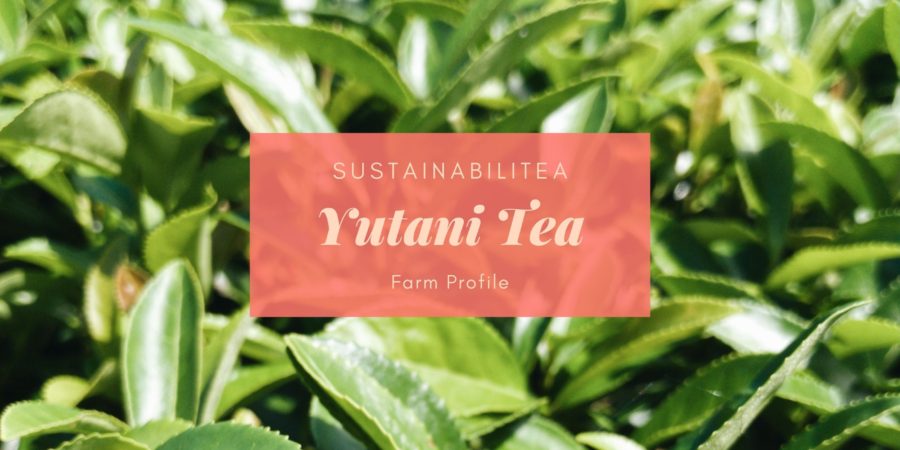Hi friends! It’s time for another SustainabiliTEA profile and today, we’re going back to Japan to talk to Yutani Tea (their Japanese name is 城州ゆたに山口製茶処), who is on Instagram as Ohbuku Valley. I spoke to Yamaguchi-san (山口), who was born in Yuyadani (湯屋谷) in Uji, Kyoto. His family has been making tea for over 300 years so you can see that this is very much part of his heritage.
Planet
Yutani Tea doesn’t use any fertilisers, instead composting various types of grasses and using that to make soil. According to Yamaguchi-san, tea loses its fragrance when too much fertiliser is applied to it, so they only use natural fertilisers, which they make by fermenting rice bran, a technique that I’ve never heard of before! This technique is called bokashi and you can read more about it at its wikipedia page but basically, the fermentation (not composting) process allows the fertiliser to be added directly to the soil without needing to be matured. The fermentation process also means that all the nutrients and energy from the rice bran go into the soil without losing any energy in the form or heat or greenhouse gases.
And as we’ve seen from other tea farms, when you’re farming in an environmentally-kind way, you’ll naturally want to continue learning and improving your process. In December, Yamaguchi-san attended a session on GAP (Good Agriculture Practices), which strengthened his resolve to continue making soil using fallen leaves, even if this is the more labour-intensive process.
What is GAP?
According to the Ministry of Agriculture, Forestry and Fishing, GAP (Good Agriculture Practices) refers to the process management of agricultural practices (農業生産工程管理). GAP gets farmers to consider the safety of the food, the farming environment, and the work safety and human rights of farm workers, with the aim of producing sustainable farming methods. You can read more about it at the MAFF’s page (in Japanese).
Another unique aspect of Yutani Tea that I’ve not seen in many other places is the fact that their tea is made from Zairai (在来種) trees. Of course, I asked Yamaguchi-san about it and he explained that zairai trees are trees that are grown from seeds. While the amount of tea you can harvest them is little, their roots are deep, the trees are more resistant to diseases, and it produces delicious tea.
Related: Jun Chiyabari – another tea farm that is growing teas from seeds
People
For the team at Yutani Tea, tea is more than just a job. Everyone who is hired is hired because they are passionate about tea (a lot like Rare Tea Company, now that I think about it). Instead of working just for money, their philosophy is to enjoy working and from there, enjoy their job.
Apart from their hiring philosophy, Yutani Tea also works with local businesses to help promote the area. In addition, they are also working with universities and volunteering when they have the chance.
Where to buy their teas
If you’re a wholesaler or interested in buying their teas for retail purposes, feel free to reach out on Instagram or directly to get more information. If you’re looking to buy the tea for yourself, you may be interested in their website (English version here) or their online store.
There’s now been quite a few number of farm profiles, and one thing I’ve realised is that many farms who are working toward sustainability are concerned with similar things – protecting the environment, genetic diversity, and finding the passion in their work. At the same time, I always learn something new in these profiles – for example, GAP. So stay tuned for the next installment in this series!

Wow! Over 300 years of tea making!!
Yes! I love that they have such a long heritage!